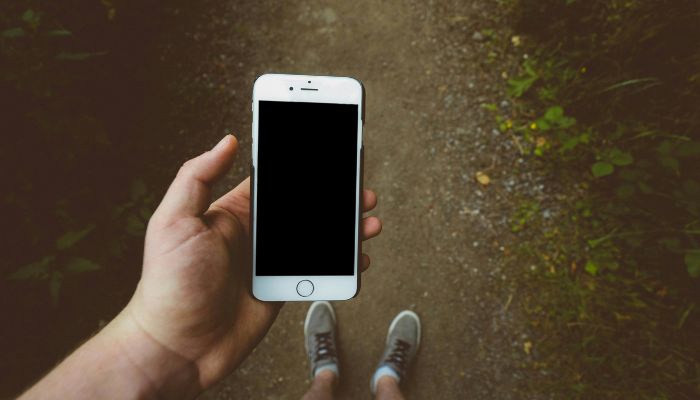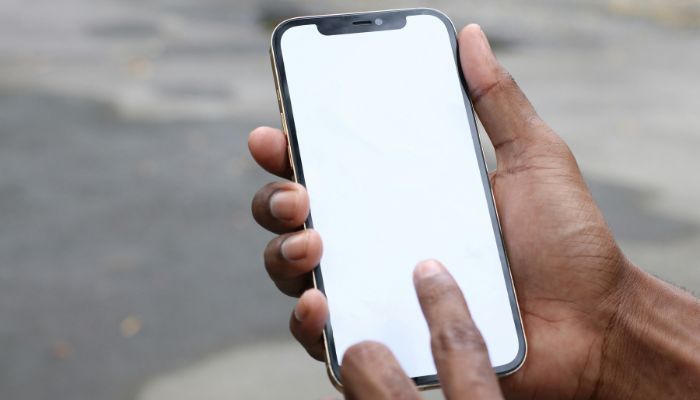
Yes, someone can track your phone without your knowledge using various covert techniques such as hidden software, GPS data exploitation, or man-in-the-middle attacks. These methods can transmit your location and other sensitive information in real-time, posing significant privacy risks. Signs of unauthorized tracking include rapid battery drain, unusual data spikes, and erratic device behavior.
To protect your privacy, update your phone’s software regularly, manage location services meticulously, and enable strong security features. Understanding these tracking methods and protective measures is crucial to safeguarding your personal data and privacy.
Understanding Mobile Phone Tracking
Mobile phone tracking, in its simplest form, leverages various technologies to determine the location of a mobile device in real-time. This process involves triangulating signals from cell towers, utilizing GPS data, and sometimes leveraging Wi-Fi networks to achieve precise location accuracy. While the technology is undoubtedly sophisticated and beneficial for navigation and safety, it brings with it significant privacy implications.
One of the primary concerns is data security. The location data collected can be sensitive, revealing patterns about an individual’s daily life, habits, and personal activities. As such, the safeguarding of this data is paramount to prevent unauthorized access and misuse.
Ethical concerns also arise regarding the extent to which tracking can be conducted without infringing on an individual’s privacy rights.
User consent is another critical factor. For tracking to be ethically and legally sound, explicit user consent is typically required. Without this consent, tracking can be considered a severe violation of privacy.
Furthermore, the technology’s inherent location accuracy has dual-edged implications; while it enhances utility and precision, it also escalates the potential risks related to privacy breaches. Thus, a careful balance must be maintained to ensure that the benefits do not come at an unacceptable cost to individual privacy and data security.
Can Someone Track My Phone Without Me Knowing? How Identingly Can Assist

1. Phone Lookup Services
With Identingly’s phone lookup service, you can investigate any suspicious phone numbers that may be associated with tracking attempts. If you receive unexpected calls or texts, our service allows you to quickly look up the number to see if it has a history of being involved in fraudulent or tracking activities.
2. People Search
If you suspect someone might be trying to track your phone, Identingly’s people search service can help you uncover more information about them. By entering the phone number or name of the person you suspect, you can find out more about their background and whether they have any history that suggests they could be engaging in unauthorized tracking.
3. Verification of Unknown Contacts
Identingly can help you verify the identity of unknown contacts who may be trying to reach you. This service is crucial if you suspect someone is attempting to track your location or monitor your activities without your consent. By understanding who is behind suspicious communications, you can take steps to protect your privacy.
4. Security and Privacy Tips
Identingly also offers resources and tips on how to secure your phone against tracking. This includes advice on managing permissions, understanding the risks of certain apps, and what to do if you suspect someone is tracking your phone without your knowledge.
By using Identingly’s phone lookup and people search services, you can take proactive steps to protect yourself from unauthorized tracking and ensure your privacy is maintained.
Common Techniques for Phone Surveillance
In today’s digital landscape, phone surveillance has evolved into a sophisticated practice utilizing various techniques to monitor and track individuals.
- One prevalent method is remote monitoring, where software installed on a mobile device transmits data to a third party without the user’s knowledge. This software can be surreptitiously installed through phishing attacks or hidden within seemingly benign applications.
- Covert tracking is another technique, often involving clandestine hardware or software that operates unnoticed by the phone’s owner. This can include spyware apps that run in the background, collecting information such as call logs, messages, and internet activity.
- Location tracking leverages GPS and Wi-Fi data to pinpoint a phone’s positions in real-time. Malicious actors can exploit this to follow a person’s movements continuously.
- Phone surveillance may also involve intercepting communications through techniques like man-in-the-middle attacks, where a third party secretly relays and potentially alters the communication between two parties who believe they are directly communicating with each other.
These methods represent significant privacy invasion risks, as they can provide unauthorized access to sensitive personal information. Understanding these techniques is crucial for safeguarding one’s digital privacy and mitigating potential threats.
How GPS Tracking Works?

GPS tracking operates through a network of satellites that transmit signals to GPS receivers in devices, allowing for the precise determination of the device’s location. This system, known as the Global Positioning System (GPS), involves at least 24 satellites orbiting the Earth.
When a GPS receiver in a smartphone or other device captures these satellite signals, it calculates its exact position through a process called trilateration.
GPS technology explained further reveals that the receiver determines its distance from multiple satellites to pinpoint its location. This location data retrieval is accurate and can be done in real-time, enabling various applications such as navigation, emergency services, and personal tracking.
However, real-time tracking capabilities can raise privacy concerns. Unauthorized access to a device’s GPS data can lead to continuous monitoring of an individual’s movements without their consent. This underscores the importance of securing devices against potential breaches and understanding consent requirements for location tracking.
Despite its robustness, there are limitations of GPS tracking. Signal obstructions like tall buildings, dense foliage, or indoor environments can reduce accuracy. Additionally, GPS tracking requires a clear line of sight to multiple satellites, making it less effective in certain locations or adverse weather conditions. Understanding these elements is crucial for appreciating both the benefits and challenges of GPS technology.
The Role of Phone Tracking Apps
Phone tracking apps have become a significant tool in the landscape of modern technology, providing capabilities that range from locating lost devices to monitoring family members for safety purposes. While these applications offer considerable benefits, they also introduce notable privacy concerns and ethical implications.
The ability to track a person’s movements can be a double-edged sword, raising questions about unauthorized surveillance and the extent to which one’s privacy is compromised. User consent stands as a cornerstone in the ethical use of phone tracking apps. Without explicit permission from the individual being tracked, the use of such technology can be deemed invasive and legally questionable.
Additionally, data security is a critical aspect, as these apps often store sensitive location data. Ensuring robust security measures can prevent unauthorized access and potential misuse of personal information. Another vital factor is location accuracy. High precision in tracking can be beneficial for legitimate purposes but could also pose risks if used maliciously.
As such, balancing the advantages of phone tracking apps with the need to safeguard individual privacy and uphold ethical standards is imperative. Users must be informed and consenting participants to maintain trust and legality in the use of these technologies.
Signs Your Phone May Be Tracked
While phone tracking apps offer considerable advantages, it is equally important to recognize the potential signs that your device may be tracked without your knowledge.
- One of the most common indicators of unauthorized tracking is a sudden decrease in battery life. Tracking apps often run constantly in the background, consuming significant power.
- Additionally, unusual data usage spikes can suggest that your phone is transmitting data without your consent, compromising your data security.
- Unexpected device behavior, such as random reboots, sluggish performance, or unfamiliar apps appearing, can also signal digital surveillance. These anomalies often indicate the presence of spyware or tracking software.
- Another red flag includes receiving strange SMS messages or emails containing unfamiliar links or code, potentially indicating an attempt to install tracking software.
- Trust issues may arise if personal information is being accessed or used inappropriately. For instance, if someone mentions your whereabouts or activities without a legitimate reason, it could be a sign of privacy invasion. Stalking concerns are heightened when these signs are observed, necessitating immediate action to safeguard your privacy.
Monitoring these indicators can help you identify and address potential digital surveillance, ensuring your phone remains secure.
Measures to Protect Your Phone Privacy

Safeguarding your phone’s privacy is paramount, especially in an era where digital surveillance is increasingly prevalent.
- To ensure your device remains secure, begin by meticulously configuring your privacy settings. Regularly review and adjust these settings to limit data sharing and enhance security.
- Another crucial aspect is managing your location services. Disable location tracking for apps that do not require it, and always be mindful of which applications have access to your location data. This minimizes the risk of unauthorized tracking.
- Implementing secure passwords is another fundamental measure. Use complex, unique passwords for your phone and all associated accounts. Enable two-factor authentication wherever possible to add an extra layer of protection.
- Be vigilant about app permissions. Apps often request access to various functions and data on your phone; only grant permissions that are absolutely necessary for the app’s functionality. Regularly audit and revoke permissions that seem excessive or unnecessary.
- Lastly, employing robust encryption methods is essential. Encrypt your phone’s data to make it unreadable to unauthorized users. This can be done via your phone’s settings, providing an additional safeguard against potential breaches.
Legal Implications of Unauthorized Tracking
Understanding the legal implications of unauthorized tracking is crucial for both individuals and entities to avoid serious consequences. Unauthorized tracking of someone’s phone raises significant privacy concerns and can result in severe legal penalties. In many jurisdictions, tracking an individual without their explicit consent breaches data protection laws and can lead to criminal charges or civil lawsuits. These laws are designed to safeguard personal data and ensure that any form of surveillance is conducted ethically and transparently.
Ethical considerations also come into play, as unauthorized tracking violates the trust and autonomy of the individual being monitored. Such actions not only undermine personal relationships but can also expose individuals to potential risks, such as identity theft or harassment. Consent requirements are stringent in most legal frameworks, underscoring the importance of obtaining clear and informed permission before engaging in any tracking activities.
The potential risks associated with unauthorized tracking extend beyond legal consequences. Companies that engage in these practices can suffer reputational damage, loss of customer trust, and financial penalties. Therefore, understanding and adhering to the legal and ethical standards regarding phone tracking is essential to mitigate these risks and uphold the principles of data protection and privacy.
Conclusion
Mobile phone tracking, often executed through GPS technology and specialized apps, poses significant privacy concerns. Awareness of common surveillance techniques and signs of tracking is essential for safeguarding personal information.
Implementing protective measures, such as disabling unnecessary location services and using security software, can mitigate risks. Unauthorized tracking not only infringes on privacy but also carries legal consequences. Vigilance and proactive steps are crucial for maintaining mobile phone security and privacy in an increasingly connected world.
FAQs (Frequently Asked Questions)
How can I tell if someone is tracking my phone?
If someone is tracking your phone, you might notice unusual signs. Your battery could drain faster than usual, or your phone might overheat. You could also see strange apps or unfamiliar settings changes. Sometimes, your phone might behave oddly, like shutting down unexpectedly or making strange noises during calls.
Can someone track my phone without installing software?
Yes, someone can track your phone without installing software directly on your device. They can do this by using your phone number, GPS data, or even through your phone’s IP address. Some tracking methods rely on sending you a link that, when clicked, gives the tracker access to your location data. Always be cautious about clicking unknown links or giving permissions to apps.
Is it illegal for someone to track my phone without permission?
Yes, it’s generally illegal for someone to track your phone without your consent. Unauthorized tracking is a violation of privacy laws in many countries. However, there are exceptions, such as law enforcement agencies tracking phones with the proper legal authority, like a warrant.
What should I do if I find spyware on my phone?
If you find spyware on your phone, act quickly. First, uninstall any suspicious apps. Then, run a security scan using a trusted antivirus app. If the problem persists, consider resetting your phone to factory settings, but make sure to back up your important data first. You should also change all your passwords, especially those related to sensitive accounts. If you think your safety is at risk, contact the authorities.